|
It is Health Literacy Month.
It’s alarming to think that only 12% of American adults are considered health literate, according to the National Assessment of Adult Illiteracy. In other words, nine out of ten Americans lack the basic knowledge to manage their health and prevent disease. This holds true for the vulnerable populations of our country, including migratory and seasonal agricultural workers. These populations face barriers to a basic understanding of their health and to receiving appropriate health education. Health Literacy – put simply – is one’s ability to understand and obtain health information. That is the simple definition. A much more complex definition resides in the specific factors and barriers contributing to a population’s lack of health literacy, which can correlate (not exclusively) to a person’s language, culture, location, and socioeconomic environment. Migratory and seasonal agricultural workers face unique obstacles to managing their own health care, including access to transportation to services, language barriers, and (in some cases) not being treated well due to undocumented status. When blockades exist to access to health, one’s access to health education will also be barricaded. Migrant and Community Health Centers strive for the elimination of health illiteracy among all their patients by providing preventive treatment and low literacy education materials for patients to learn more about a specific diagnosis or their risk factor(s). The patient is not solely responsible for his or her healthcare and health education. Health center staff are being trained to become culturally competent in their respective positions. Cultural competency – according to Health.gov – “is the ability of health organizations and practitioners to recognize the cultural beliefs, values, attitudes, traditions, language preferences, and health practices of diverse populations, and to apply that knowledge to produce a positive health outcome. Competency includes communicating in a manner that is linguistically and culturally appropriate.” NCFH prides itself on our ability to orient and train staff to implement cultural competency curriculums in the migrant and community health centers we serve. Participants of NCFH cultural competency courses learn to understand the meaning of diversity and its relationship and impact on communication and human relations. Along with that they increase awareness of their personal attitudes, beliefs and behaviors related to cultural diversity; and enhance skills for improved cross-cultural communication. NCFH also offers low literacy and English/Spanish translation services in order to continue improving a patient’s health literacy. Improving a health center staff’s cultural competence and patients' overall health literacy, allows for more involvement with, and awareness of, the diverse populations that health centers serve, and ultimately contributes toward eliminating one of the many barriers a patient faces related to health literacy. By: Mindy Morgan Although there has been substantial progress in cancer treatment, screening, diagnosis, and prevention over the past several decades, addressing cancer health disparities—such as higher cancer death rates, less frequent use of proven screening tests, and higher rates of advanced cancer diagnoses—in certain populations is an area in which progress has not kept pace. These disparities are frequently seen in people from low-socioeconomic groups, certain racial/ethnic populations, and those who live in geographically isolated areas. – National Cancer Institute 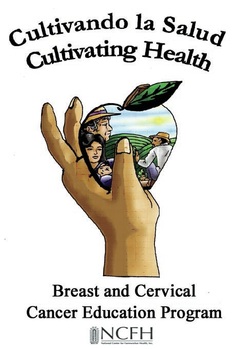 The U.S. Latina population has lower-rates of breast cancer than non-Hispanic women. However, they have a 20% greater chance of dying than other women after receiving a positive diagnosis. Many attribute this discrepancy to the social determinants of health that influence patient survival – including a lack of access to quality education and healthcare, which is exacerbated by patients’ socioeconomic statuses. The unique seasonal and migratory lifestyles of female agricultural workers further compound and complicate these issues – as do the effects of existing misinformation regarding screenings and cultural beliefs amongst this population. The necessity of consistent appointments and follow-ups for effective care proves problematic for those on the move and those working under severe occupational time constraints. Women over the age of 50 are urged to get annual mammograms in addition to performing frequent self-examinations. However, a positive exam only constitutes an initial step in the breast cancer diagnosis process. Patients must return and provide a tissue sample before the disease is confirmed. Federally Qualified Health Centers (FQHCs) served more than 2 million women over the age of 50 and 440,000 women utilized services at Migrant Health Centers in 2014. FQHCs also performed more than 470,000 mammograms and found almost 110,000 breast abnormalities last year. The National Center for Farmworker Health recognizes the need for a special focus on breast cancer outreach to the U.S. female agricultural worker. Through its Cultivando la Salud program, NCFH offers health centers and other Hispanic-serving organizations the opportunity to receive train-the-trainer instruction intended to provide program planners with the knowledge, step-by-step process, and the tools to successfully plan and develop a comprehensive breast and cervical cancer education program for the agricultural population as well as other Hispanic communities. The training includes basic program planning information from designing the program goals and objectives to developing a budget to recruitment and training of lay health workers. The program also includes an evaluative component and specialized focus on the teaching tools lay health workers will be using in the community. At the end of the training, training participants will be provided with a complete training curriculum, a program manual to guide the implementation of the program, and the CLS teaching tools for lay health workers to use in the community. By Lindsey Bachman
Photo: Steve Debenport, iStock 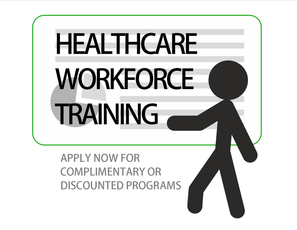 Did you know that NCFH offers a limited number of complimentary or discounted training programs to Community/Migrant Health Centers? These programs feature a selected number of services with the goal of increasing knowledge, skills, and abilities of a diverse health care workforce. Seize the opportunity to experience NCFH's programs tailored for front-line staff, management, board of directors and others. We even provide some of the trainings via Webinar and video conference! Simply identify your training needs based on our available programs, and submit your application. We only have a limited number of these special offerings left, so please contact us by October 9th for more information. Apply Today! 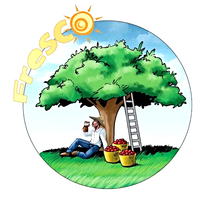 Farmworkers are at high risk for heat and sun illness because they work for long hours outdoors during the hottest and sunniest time of the year. For this reason, it is important to teach and inform them about heat and sun safety. Our educational farmworker safety program, Promoviendo Farmworker Safety (Project FRESCO) is a lay health worker delivered educational intervention that increases sun safety behavior among farmworkers. The training curriculum provides promotoras with the skills and knowledge to effectively use the FRESCO materials to encourage farmworkers to make simple, practical, and lasting changes to protect themselves from heat and sun while they work in the field. Materials are available in both English and Spanish. Having trouble recruiting, orienting and integrating new consumers into your health center board? Our new training toolkit can help increase the recruitment and successful integration of agricultural workers and other potential health center consumer board members. The curriculum teaches about community leadership, migrant health, board membership, and health center governance. Available in English only. Spanish materials coming soon!
Complimentary or Discounted Training ProgramInterested in Planning your Health Center Training Needs in 2015?
NCFH is offering a limited number of complimentary or discounted training programs on a selected number of services with the goal of increasing knowledge, skills and abilities of a diverse health care workforce. You'll have the opportunity to experience NCFH's training programs that are available for front-line staff, management and board members, health care providers, outreach workers and others. Eligible Training Programs include:
Simple 4 Step Process:
|
The National Center for Farmworker HealthImproving health care access for one of America's most vulnerable populations Archives
July 2024
Categories
All
|
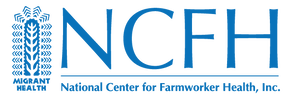

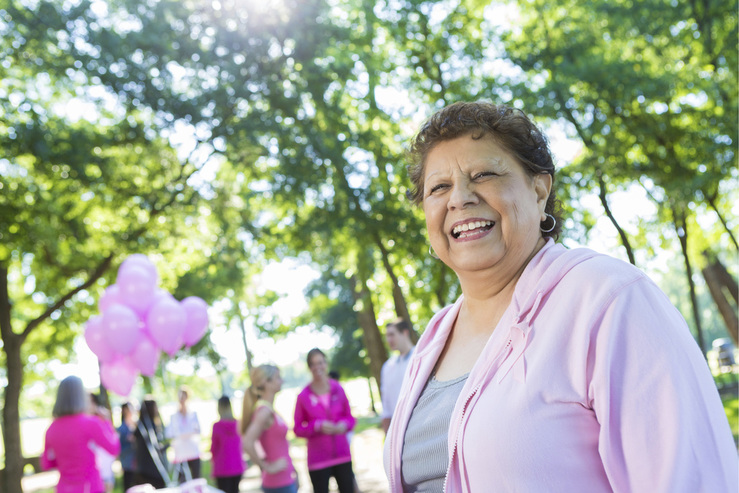
 RSS Feed
RSS Feed